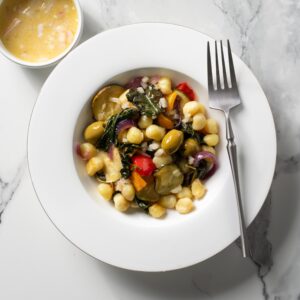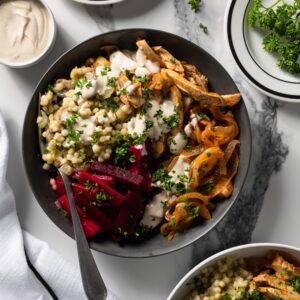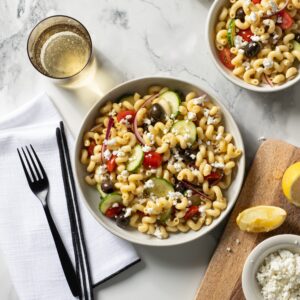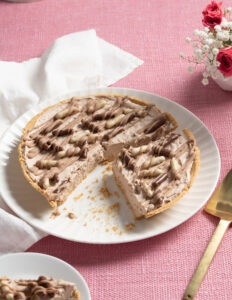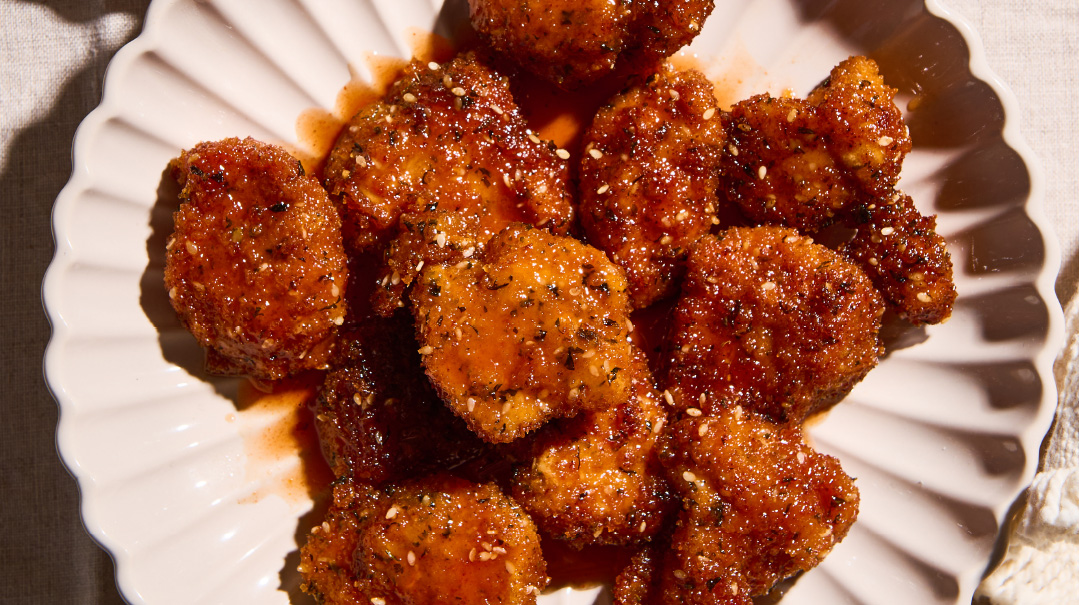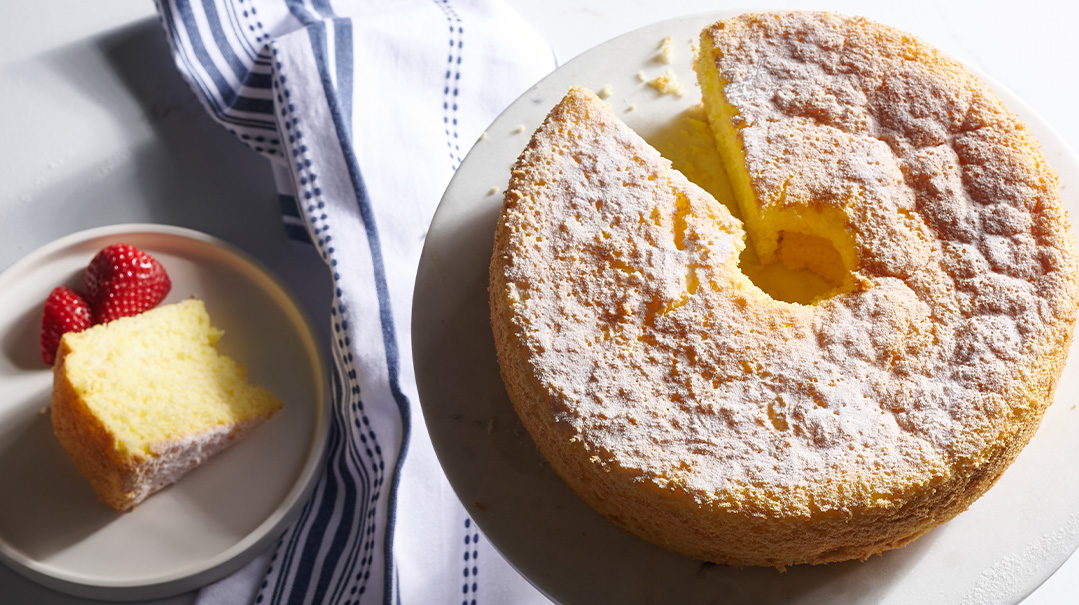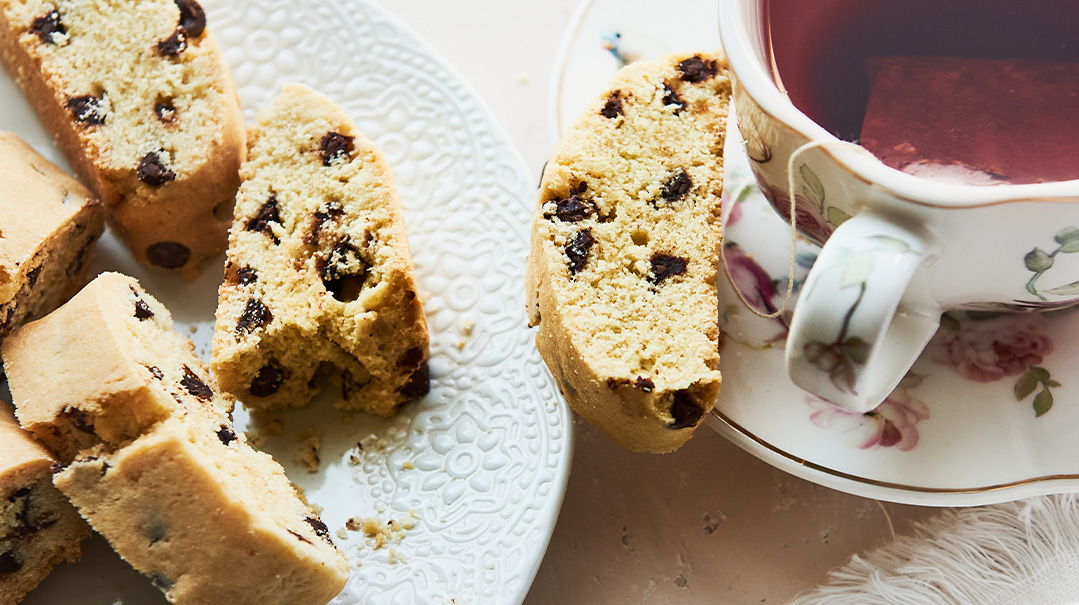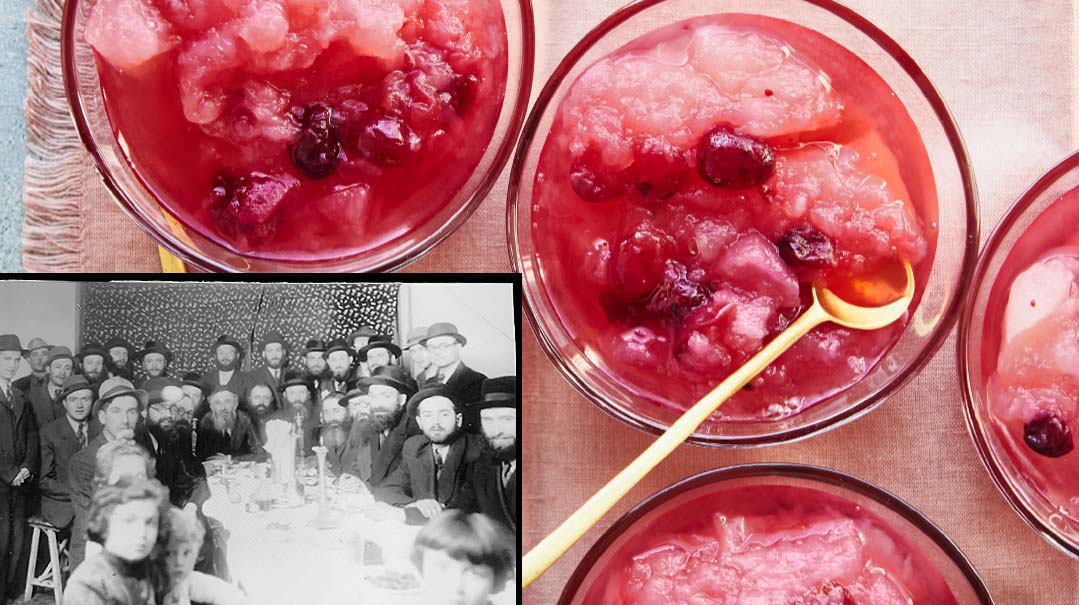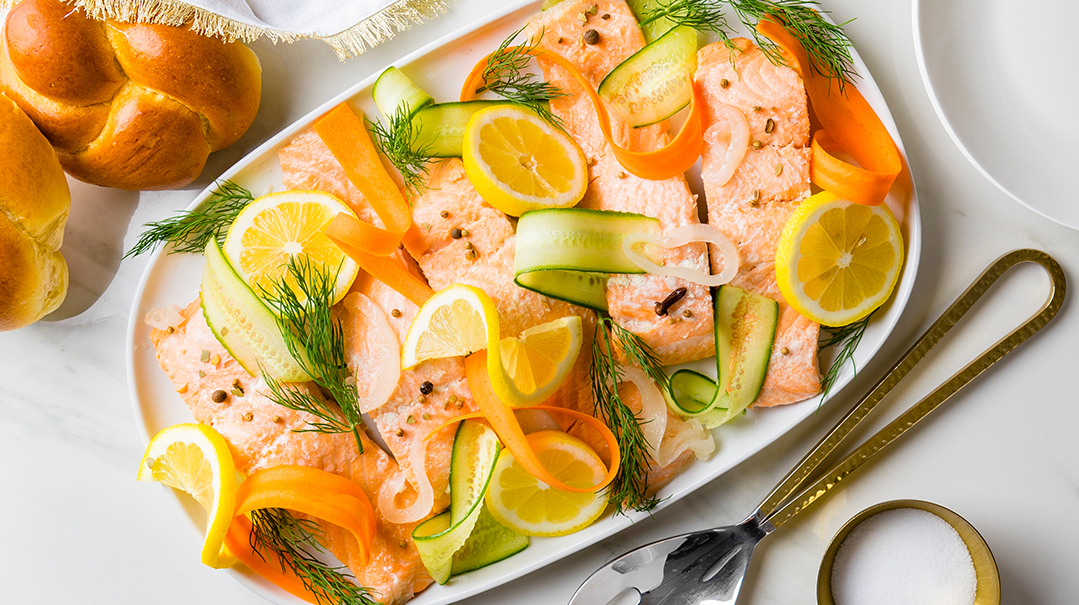Simple Joys for the Holiest Day
| February 24, 2021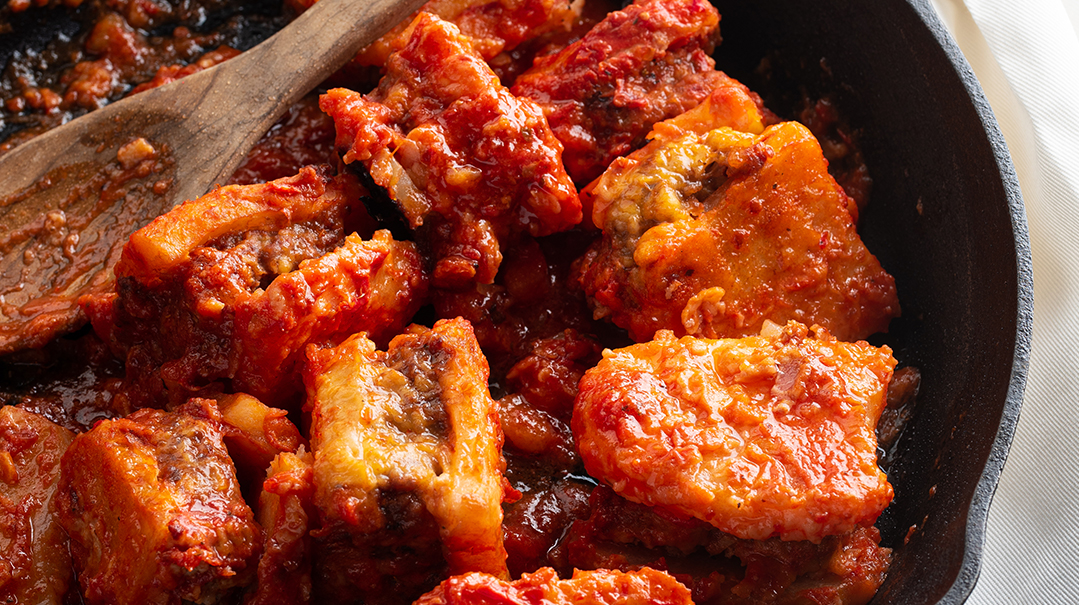
Rebbetzin Shulamit Bitton-Blau, as remembered by her children and grandchildren
Maybe it was because she was an only child, born under miraculous circumstances to her holy parents, Rav Shimon and Beya Cohen, that led to a lifelong joie de vivre for Rebbetzin Shulamit Bitton-Blau.
Perhaps it was the massive and beautiful Birkas Kohanim endowed on the community from the shuls in Djerba each Shabbos, with priestly families who could trace their lineage centuries back.
It may have been her recovery from a burn accident at age six that required a yearlong hospitalization in Tunisia, after which the doctors told her she would likely never have children.
How it came about may have been a mystery, but what was clear to all who knew her was that Rebbetzin Bitton-Blau built upon her auspicious roots — and worked on herself and her faith so that even when she experienced significant loss and great challenges, she radiated true simchas hachaim. She loved other people, gave to her family and those around her with joy, and saw Torah as the shining gem in her life.
Shulamit (Cohen) Bitton-Blau was born and raised in Tunisia, and traveled to Gateshead at the encouragement of her parents at age 17. It was there that she met and married Rabbi Shimon Bitton, who studied in the Gateshead Kollel. The family lived in Gateshead for close to two decades and then moved to Marseilles, France, where Rabbi Bitton served as av beis din and rosh kollel.
Tefillah was always an integral part of the Rebbetzin’s life. She relished going to shul, and when the children were old enough, the Rebbetzin would go with them on Shabbos and sing the tefillos softly along with the tzibbur. She faithfully attended early-morning Selichos and Shacharis for the entire month of Elul for many years, including the last year of her life, when it was difficult for her to walk.
A Different Type of Riches
“Growing up, we had very little money — but we never felt poor, because my mother filled all of our emotional needs and our home was a happy place,” explained daughter Aliza Jacobovits. “Her entire life was filled with making others happy. At chasunahs, she would go right into the center and do elaborate dances in front of the kallah. When we called her on the phone, even if we had just spoken to her a day or two before, she would say hello in an upbeat and excited way as if it were something extra special to speak to us.”
There wasn’t a lot of money for fancy foods when the children were young, but for Shabbos, the Rebbetzin would spend extra to find special treats. When salmon became available, she purchased it l’kavod Shabbos. She would cook large amounts of food for the family and for guests, and when there wasn’t enough, she’d cut back on her own portion to enable the guests to eat comfortably.
“I remember my mother cooking raisins in water in Gateshead to make wine for Kiddush,” reminisces daughter Naomi Maimon. “That’s what people did — wine and grape juice weren’t easily accessible or affordable. But Shabbos evolved for her, as it did for many families. And later in life, when she was living in Eretz Yisrael, my mother would spend time on Thursday preparing more elaborate foods, and many different salads.”
The Rebbetzin would prepare large amounts of kefteh for everyone to eat on Erev Shabbos. The several steps involved in making this Sephardic dish were worth it to bring joy to her family in honor of Shabbos, and they all remember it fondly.
Shabbos at the Bittons
“The preparations leading up to Shabbos were always calm,” Mrs. Maimon says. “My mother was very organized and punctual. Sometimes there would be rushing around Erev Shabbos, but it was we kids who were running behind, not our mother,” she adds wryly. “My mother would sit down before candle lighting and drink a cup of coffee.”
Rebbetzin Bitton-Blau loved hosting guests, and many Gateshead alumnae — including a number of Sephardic girls from Morocco, who were far from home — remember spending time in the Bitton home in England and drinking in her love, warmth, and contagious joy.
On Shabbos afternoon, people were drawn to the Bitton home. It was the place to be. “My mother never looked down on anybody, and she was truly happy to have her home filled with people,” muses Aliza Jacobovits. “They sensed that, and they came. It was so much fun with everyone around.
“Our Shabbos meals were quick, as my father didn’t like to sit around,” she adds. “He was very particular that there should be no lashon hora or devarim beteilim discussed at the Shabbos table. Once the meal was over, my father would go learn, and we would sit around and schmooze. Very often my mother would just sit and watch my father learning before he went to the Kollel — she loved hearing him learn Torah.”
Rav Bitton passed away when the Rebbetzin was in her early 40s, and she faced the challenge of continuing to raise their eight children on her own. Although she put up a strong front for her children and held back from mourning on Shabbos, the Rebbetzin was hit with intense grief after the sheloshim. It took her a full year to regain her faith and strength to the level where she was able to resume being mechazek others.
In her later years, the Rebbetzin’s children would try to invite her for Shabbos. But she would demur, saying, “I want to make Shabbos, and I want people to come to me!” She would offer to drive and pick up her kids, send them a taxi, or pick them up from the bus station — whatever made it easier for them to travel with their young children from different neighborhoods.
An appreciation for every aspect of Shabbos was imbued in the Rebbetzin by her parents, and passed down to her children and grandchildren through her actions. The Rebbetzin’s father, suffering from Alzheimer’s in advanced age, thought that every day was Shabbos. He insisted on getting dressed in Shabbos clothing and reciting Kiddush (during the week), and the Rebbetzin honored her father and cared for him lovingly, even dressing in Shabbos clothing herself to bring him joy.
After living in Eretz Yisrael for several decades, the Rebbetzin married Rav Yaakov Yeshaya Blau, dayan of Yerushalayim’s Eidah Hachareidis and rav of the Sanhedria neighborhood of Yerushalayim. She chose to give up her spacious apartment and make significant life changes for the zechus of being married to a talmid chacham, and embraced the chance to support and encourage the Rav in his Torah learning. During the seven years they were married, the Rav resumed his writing and published two more seforim, which his sons credited to the joy she brought him in their marriage.
Rav Blau was makpid that preparations for Shabbos be done by Jews, and the grandchildren would take turns going to their home to help make the beds and clean the apartment in honor of Shabbos. The Rebbetzin would always prepare a special lunch for them to eat on Erev Shabbos, buy them gifts, and insist on paying them for their time and their help.
She lived for one more year after Rav Blau was niftar, dividing her time between her children in Eretz Yisrael, London, and Lakewood, and making huge efforts to be a part of every family simchah. She utilized every opportunity she had to make other people happy, whether it was through the heartfelt brachos she dispensed (which had uncanny positive results!), meaningful gifts, or the most appreciated — the gift of her time, attention, and abundant love.
Rebbetzin Bitton-Blau’s Keftehs
- 2 large Idaho potatoes, sliced into ¼-inch (½-cm) slices
- 3 eggs, beaten
- flour, for dredging
- oil, for frying
- tomato paste or paprika
Meatball Mixture
- 1 lb (450 g) ground beef
- 2 cloves garlic, minced
- 1 medium onion, finely diced
- ½ cup fresh cilantro, finely chopped
- 2 slices bread, soaked and crumbled
- 1 egg
- 1 tsp paprika
- 1 tsp salt
- ½ tsp ground black pepper
Combine all ingredients for the meatball mixture.
Beat eggs in a medium-sized bowl. Place the flour in another bowl.
Scoop out a spoonful of meatball mixture and place it between two slices of potato. Dip the potato-meat “sandwich” into beaten egg, then into flour.
Heat oil in a frying pan, and fry keftehs until golden brown.
Fill a pot halfway with water and add a few tablespoons of tomato paste or a few shakes of paprika. Mix and bring to a boil. Place the fried keftehs in the water (it should just cover the keftehs, drain any excess). Cook for 30–40 minutes or until the water evaporates. Serve hot.
(Originally featured in Family Table, Issue 732)
Oops! We could not locate your form.

